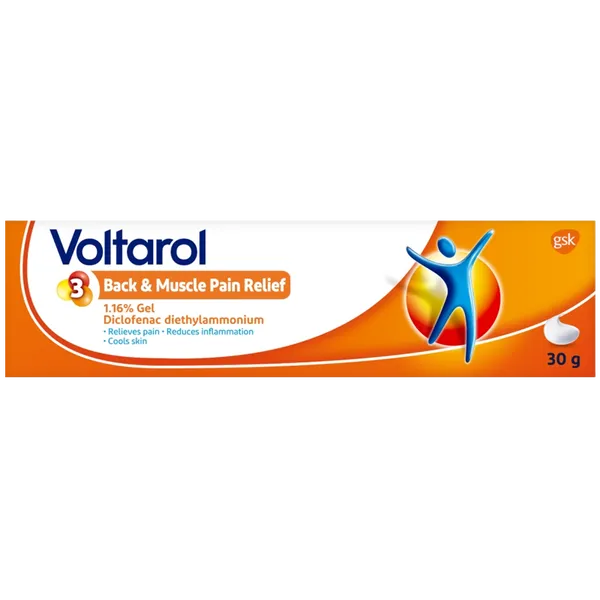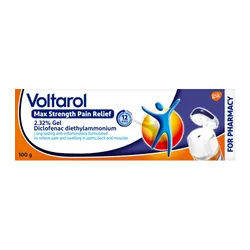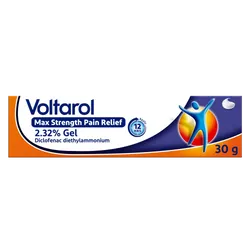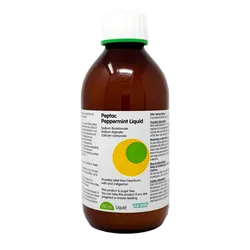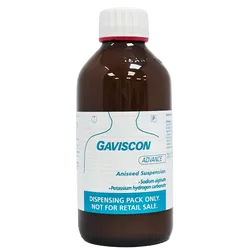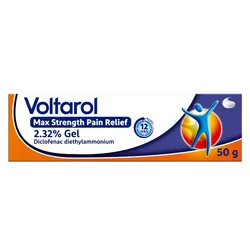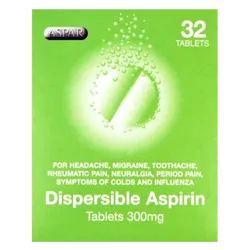Avoid contact of this medicine with the eyes and the moist membranes lining the inside of certain parts of the body, eg mouth, nasal passages (mucous membranes). Rinse with cold water if accidental contact occurs.
When diclofenac is applied to the skin it is absorbed into the bloodstream to a far lesser degree than diclofenac taken by mouth. This means it is much less likely to cause side effects on the gut than oral diclofenac. However, it is important that people with a history of disorders affecting the stomach or intestines are closely monitored by a doctor while using this medicine, particularly if elderly.
Consult your doctor immediately if you experience side effects such as stomach pain, indigestion, heartburn or signs of bleeding in the stomach or intestines, eg blood in the stools, while using this medicine.
If large areas of the body are covered with gel, absorption into the bloodstream will be greater and the risk of side effects increased, especially if the gel is used frequently. Do not use the gel more than four times in a 24 hour period.
You should avoid excessive exposure to bright sunlight while using this medicine, as it may increase the risk of sunburn.
If symptoms persist after seven days of treatment or get worse at any time, seek medical advice from your doctor or pharmacist. You should not use this medicine for longer than seven days unless recommended by a doctor.
Use with caution if there is a
- history of asthma or allergies.
- history of ulceration or bleeding in the stomach or intestines.
Not to be used:
- if aspirin or other NSAIDs, eg ibuprofen, cause allergic reactions such as asthma attacks, itchy rash (urticaria), nasal inflammation (rhinitis) or swelling of the lips, tongue and throat (angioedema).
- on children under 12 years old.
- during pregnancy.
This medicine should not be used if you are allergic to one or any of its ingredients. Please inform your doctor or pharmacist if you have previously experienced such an allergy.
If you feel you have experienced an allergic reaction, stop using this medicine and inform your doctor or pharmacist immediately.
Pregnancy and breastfeeding
Certain medicines should not be used during pregnancy or breastfeeding. However, other medicines may be safely used in pregnancy or breastfeeding providing the benefits to the mother outweigh the risks to the unborn baby. Always inform your doctor if you are pregnant or planning a pregnancy, before using any medicine.
This medicine is not recommended for use during pregnancy. It should not be used in the third trimester of pregnancy because it may delay labour, increase the length of labour and cause complications in the newborn baby. It is not recommended for use in the first and second trimesters of pregnancy unless considered essential by your doctor. Seek medical advice from your doctor before using this medicine if you are pregnant.
When diclofenac is taken by mouth it passes into breast milk in very small amounts that are unlikely to be harmful to a nursing infant. The manufacturer has not studied the safety of using diclofenac gel when breastfeeding, but it is unlikely to be absorbed sufficiently to have any effect on a nursing infant. However, the manufacturer recommends it is not used by women who are breastfeeding. As with all medicines, you should seek medical advice from your doctor before using this medicine if you are breastfeeding.
Side effects
Medicines and their possible side effects can affect individual people in different ways. The following are some of the side effects that are known to be associated with this medicine. Just because a side effect is stated here does not mean that all people using this medicine will experience that or any side effect.
- Skin irritation, itching or redness.
- Inflammation of the skin (dermatitis).
- Abnormal reaction of the skin to light, usually a rash (photosensitivity).
- Allergic reactions, such as narrowing of the airways that causes difficulty breathing (bronchospasm), swelling of the lips, throat and tongue (angioedema) or severe skin reactions.
The side effects listed above may not include all of the side effects reported by the medicine's manufacturer.
For more information about any other possible risks associated with this medicine, please read the information provided with the medicine or consult your doctor or pharmacist.
How can this medicine affect other medicines?
If you are already using any other medicines, including those bought without a prescription and herbal medicines, it is important to check with your pharmacist before using this medicine as well. Similarly, check with your doctor or pharmacist before taking any new medicines while using this one, to ensure that the combination is safe.
When it is used on unbroken skin this medicine is unlikely to be absorbed in sufficient amounts to affect other medicines that are being taken by mouth.
No interactions have been reported between Voltarol pain-eze emulgel and other medicines. However, the manufacturer recommends that Voltarol pain-eze emulgel should not be used in combination with any other medicines containing diclofenac, or with other NSAIDs taken by mouth, for example ibuprofen, as this may increase the risk of side effects.
